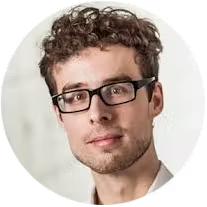Interview with Dr. Kris Verburgh, medical doctor and bestselling author of the book The Longevity Code.
He created a new scientific field, nutrigerontology, that studies how nutrition can accelerate or slow aging and influence the risk of aging diseases, like heart disease or dementia. Verburgh wrote his first science book when he was 16 years old. At age 25, he had written three science books. Dr. Verburgh gives talks on new developments and paradigm shifts in medicine, healthcare and the science of aging.
Dr. Verburgh, your experience and biography is truly impressive. Could you please tell us a bit about your specialty/background? How did your interest in longevity begin? Why nutrigerontology?
Dr. Verburgh: When I was a medical student I realized that the best way to keep people healthy for as long as possible was by slowing down aging itself. Aging is the root cause of many diseases that sooner or later will affect everyone, like cardiovascular disease, dementia or osteoporosis. I also love big challenges, and aging is one of them. Additionally, I have a deep interest in philosophy, and the question why aging exists and why we die is an interesting philosophical issue. Besides that, I have always been fond of molecular biology and biochemistry and the science of aging is an all-encompassing field where many branches of biology come together. As a medical doctor, I love to look into ways how we can extend our life span and stay healthy for longer. The best method we currently have to live longer is our lifestyle, of which nutrition is most important, followed by exercise, sleep, positive psychology and so on. The problem with nutrition advice however is that there is a lot of conflicting advice: you have high protein diets, high fat diets, caloric restriction diets, low carb diets, and so on. The best way to assess which diet is the best in the long term is by basing oneself on the science of the aging process: if you know why and how we age you can much better assess what is the best diet in the long term. For example, one of the reasons why we age is the accumulation of proteins in our body, a process that plays a role in all kinds of aging diseases, like Alzheimer’s disease and heart failure. So this insight already hints that a high protein diet is not advisable in the long-term, despite it may improve some health parameters in the short term, such as weight loss or improved cholesterol levels.
On your website you have quoted Ashley Montagu “The idea is to die young as late as possible.” In your bestselling book, The Longevity Code you are following this idea and focusing on why we age and how to slow the process so we can live well, for longer. So what is your short definition of how?
Dr. Verburgh: The best method we have to live longer is currently our diet. A healthy longevity diet boils down to three simple rules. Rule number one: consume less red meat, and less animal protein in general. Replace red meat such as pork, beef and mutton with white meat such as poultry and with fish, especially omega-3-rich fish. Consume more plant-based protein sources, such as legumes and nuts. Second rule: consume less sugars and starches, which includes bread, potatoes, pasta and rice. Replace these nutritionally-empty carbs more with vegetables, legumes or mushrooms. Third rule: consume more healthy fats, derived from olives and olive oil, avocado, fatty fish, nuts and seeds. Addtionally, consume foods that have been proven to be very healthy and that can slow down aging, such as blueberries, dark chocolate, walnuts, green tea, mushrooms, kale, broccoli, and so on. Also take smart food supplements, like vitamin D3, selenium, B vitamins, and magnesium malate. These supplements can slow down aging, and many people are deficient of them, even people who claim to eat healthy.

The best method we have to live longer is currently our diet.
You have a profound interest in new and disruptive technologies. How will technology impact healthcare and our life spans? What technological developments do you consider as key for an increase of life expectancy, and why?
Dr. Verburgh: We are at the start of the Fourth Industrial Revolution which will have a huge impact on our lives and on society itself. Several technologies that drive this revolution, such as artificial intelligence, the internet of Things, cloud computing, big data and robotics will transform medicine in many ways. There already exists AI that can diagnose diseases better than human doctors, or that assesses your genome, medical images or your personal electronic medical record to predict your risk of getting diabetes, heart disease or your mortality risk. Besides these technologies, a very important pillar of the Fourth Industrial Revolution will be biotechnology. We are currently seeing the rise of all kinds of new biotechnologies that were inconceivable just ten years ago. Examples are gene editing, enabling scientists to rewrite genes much more accurate, cheaper and faster than ever before, or immunotherapy, which can already cure previously palliative cancers in patients, something that was impossible a few years ago. Many of these technologies can also be applied to extend our life span. Scientists already partially reversed aging in lab animals, making old animals younger again. In one experiment, researchers epigenetically reprogrammed older mice into a younger state. In another experiment, scientists cleared away senescent cells, rejuvenating mice. There are many other methods to not just slow down aging, but actually reverse it. These methods attempt to rejuvenate the mitochondria which are the power plants of the cells, or by clearing up the proteins that accumulate during aging, or employ next-generation stem cell therapies. Hundreds of millions of dollars are pouring into this kind of research, and I believe that in less than 15 years we will see the first treatments that can considerably slow down aging.
Will these developments have economic benefits? How will they make a difference to wider society and the way we live our lives?
There are huge economic benefits by slowing down aging and keeping people healthier and younger for longer. There is a huge silver tsunami coming our way. 40 years ago, there were around 13 working people for each retired person older than 65, soon there will only be two working people for each person older than 65. Retirement costs and healthcare costs will be unattainable for most governments and insurance companies, and this will lead to their bankruptcy if we don’t do anything about it. Elderly people would need to keep working as long as possible, full-time, part-time or as volunteers, which improves their health and well-being and makes them feel valuable and provides routine and purpose. But more importantly, we need to keep the elderly as healthy as long as possible. This will only be possible by addressing aging itself, given aging is the root cause of all age-related diseases. Most politicians think in the short term, and are ignoring the huge challenges that lie before us in the future. My generation shouldn’t take for granted anymore a sustainable retirement when we are old.
What would you say is the impact of exercise, stress and sleep on our longevity? What other factors do you consider as having a critical effect on length of life?
Dr. Verburgh: The most important thing we can do to live longer is eating healthier. Nutrition can extend maximum life span, while exercise cannot do this. Nonetheless, exercise can extend medium life span, and exercise is definitely healthy. Exercise can reduce your risk of dementia, heart disease and many other aging-related diseases. Stress and sleep deprivation accelerate aging. Meditation, yoga, positive thinking, cognitive behaviour therapy, surrounding yourself with friends and family can all reduce stress. Making sure you have enough sleep is also very important, during sleep our body repairs and restores itself. You can improve sleep by meditating before going to bed and by healthy supplements like valerian, magnesium, low-dose extended-release melatonin, and by drinking chamomile tea for example. Other factors that impact longevity are of course not smoking and not drinking too much alcohol. Challenging your brain with new things and experiences is also very healthy, as is having goals in your life. Volunteering work and even having pets to take care of can extend life span.

